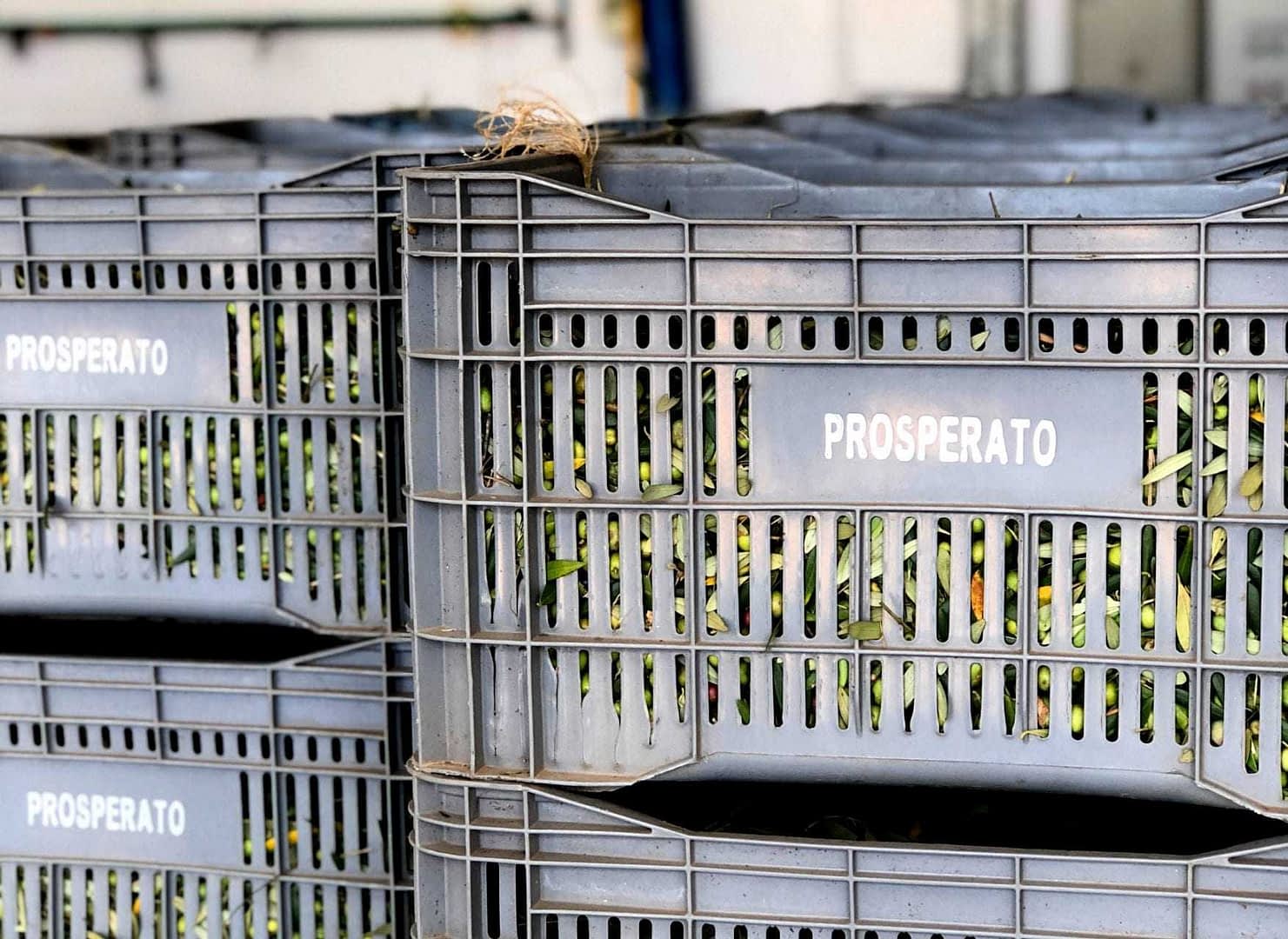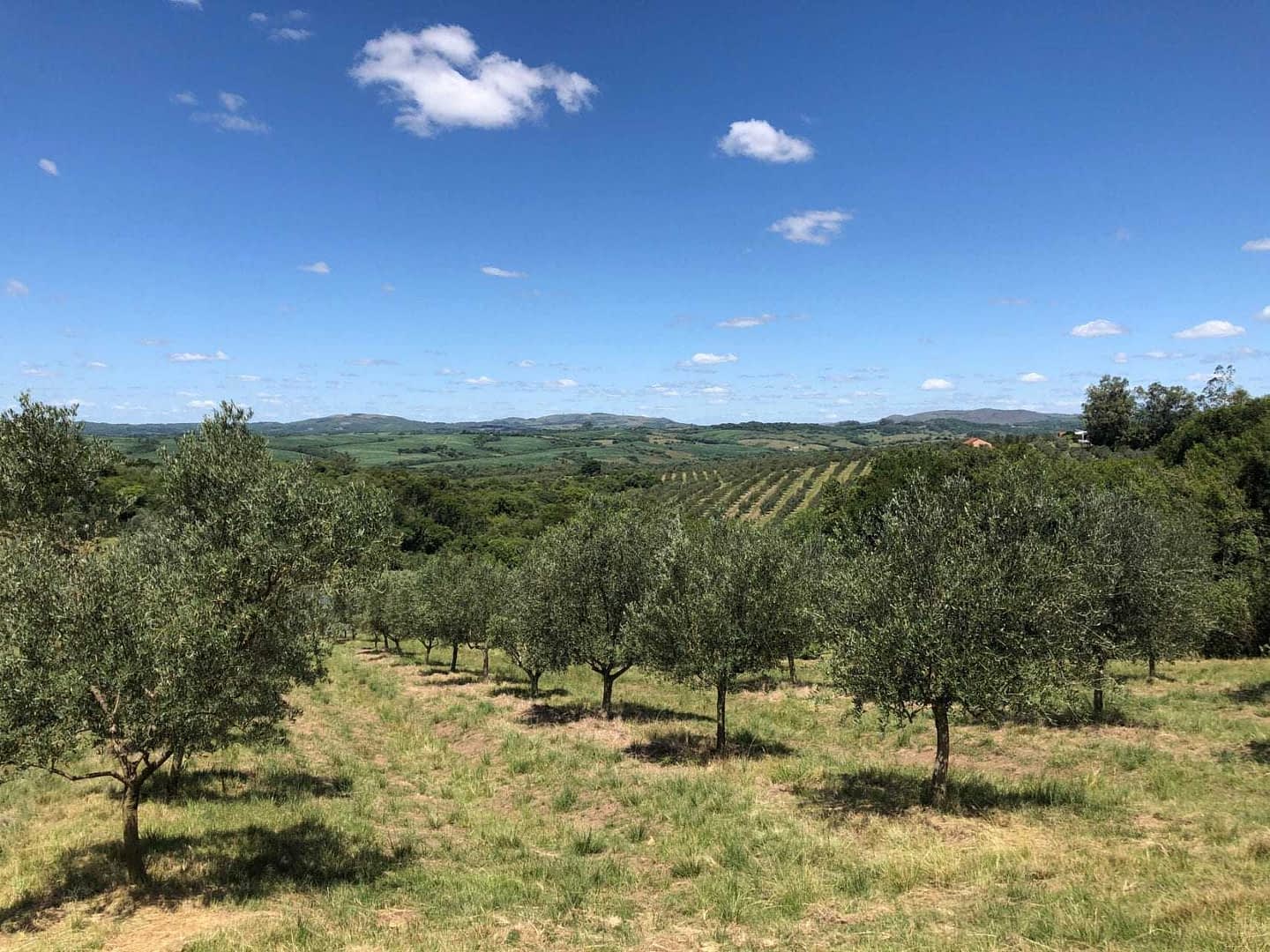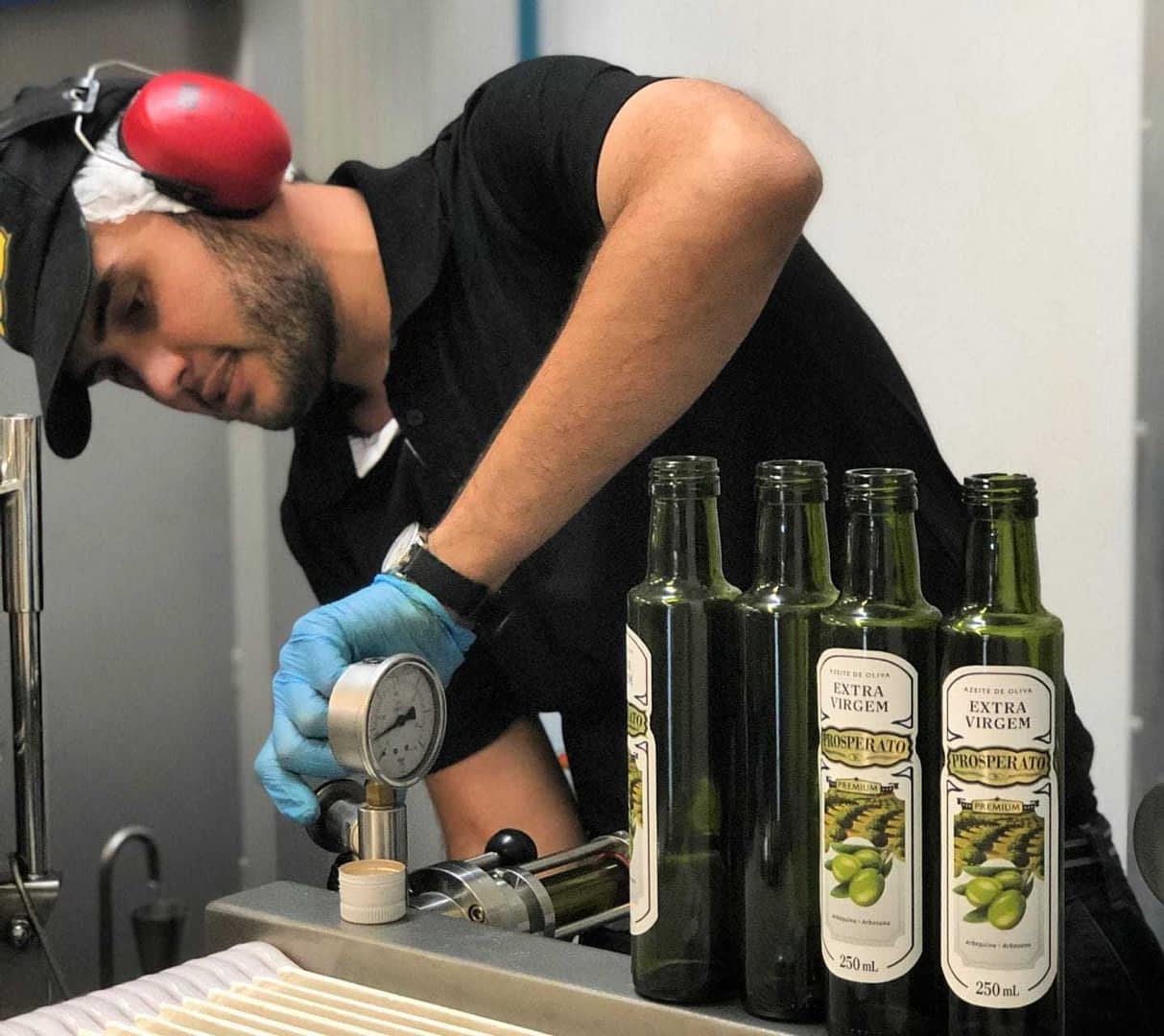As Harvest Begins in Rio Grande Do Sul, Brazil Records First Exports
Over the past two decades, olive oil production in southern Brazil has gone from one man's dream to a small but booming industry. As the 2020 harvest gets underway, producers in Rio Grande do Sul prepare for another trailblazing year.
 Fazendas Irapuá
Fazendas IrapuáFebruary seems light years away from this moment, but there was a time, a few weeks ago, when the threat of the coronavirus seemed very distant in the Southern Hemisphere, and all of Brazil’s interest was in the Carnival.
While most Brazilians were out in the streets celebrating, the olive harvest was getting underway in Rio Grande do Sul.
Producers in the largest olive-growing region of the country were in the process of pressing and filtering their first batches of extra virgin olive oil for the year. The first exports of the season were also recorded, headed for the United States.
While we plant and produce, we are also writing history.
Rio Grande do Sul is the southernmost state in the country and is mostly home to sprawling fields of soybeans and rice. Bordering the pampa gaucha of Uruguay and Argentina, the region boasts some of the best cattle grazing lands on the continent.

The history of olive oil, however, in this long-time agricultural region is very recent. Twenty years ago, Willy Haas, then an executive of the O’Globo chain, wanted to invest in the Cachoerias area. He had a hunch that olive trees might grow well in the pampa gaucha.
Back then, there were no olive oil producers in Brazil, and the agricultural company that advised him was not enthusiastic about the idea. They thought there was no way that olive trees could thrive in the region.
In spite of their reservations, Haas went ahead with his plan and two decades later fulfilled his dream: He now has almost 200 acres of olive trees and is building a mill.
Haas serves as a bit of a barometer for the country’s entire olive sector. Since he planted his first trees to the present moment, Latin America’s largest country has developed a small but booming olive oil industry.
He now hopes to launch his new brand this year, along with his daughter, Glenda, who is in charge of the project.
While Haas was one of the first to bring olive trees to Rio Grande do Sul, Olivas do Sul was the pioneering olive oil producer that defied all the predictions. Beginning production in 2008, the company put Brazil on the world olive oil map.

Prosperato
Following Oliva do Sul’s example, several other entrepreneurs decided to invest, and today, the region is home to the vast majority of Brazilian olive oil production, which remains very small.
Overall, Brazil produced 230,000 liters in 2019, with more than 60 percent of the yield coming from the groves of Rio Grande do Sul.
Of those 230,000 liters, Prosperato, the country’s largest olive oil producer, is responsible for roughly one-third.
Located in the Capaçava do Sul region of Rio Grande do Sul, the Marchetti family decided some years ago to expand their operations from the nursery business to other crops.
Olives were among the crops that piqued their interest but were thought to be too difficult to sell at the time. Despite this, the Marchettis decided to buy an orchard in order to demonstrate that olive oil could be produced in Brazil and thus attract new customers to their main business.
Their grand experiment yielded a Best in Class Award at the 2019 NYIOOC World Olive Oil Competition.
These days, the mill is run by Rafael, one of the sons, who at the age of 25 manages everything with dedication and professionalism, incorporating techniques and technological innovations that he has seen in different parts of the world.
With 65,000 liters produced in 2019, a record-high harvest, Prosperato remains the country’s largest producer by a wide margin.
This year, Marchetti thinks Prosperato will produce about 20,000 liters, closer to their numbers from other years.
“It is a little frustrating, due to the spectacular flowering,” Marchetti said. “We believe that the November rains affected us, or also the biannual [off-year].”
“Everything is too recent to have a pattern,” he added. “While we plant and produce, we are also writing history.”

Rafael Marchetti, Prosperato
Along with being the country’s largest producer, Prosperato has also become the country’s first olive oil exporter, sending some of its fresh extra virgin olive oil to the United States.
“With the Best in Class Award we received at NYIOOC last year, we caught the attention of an American company,” he said. “They came to visit us and now it is possible to buy Prosperato online in the U.S.”
However, for the time being, most of Prosperato’s production is sold domestically at the company’s own shop, Emporio Prosperato.
Situated next to the olive groves and on the highway connecting Porto Alegre with the Argentine-Uruguayan border, the store offers a selection of local and imported products to enjoy with their extra virgin olive oil.
“We still have the great challenge of educating consumers about this product, but we continue our work,” Marchetti said.








